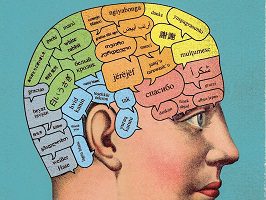Difference between psychology and neuropsychology
Psychology is the science responsible for studying and intervening in people’s cognitive, affective and behavioral processes. In this article we will present you the difference between psychology and neuropsychology.
It is a discipline that covers many areas and has many branches; One of them, neuropsychology, is the science specializing in the diagnosis, assessment, and treatment of cognitive and behavioral disorders caused by brain damage.
Next, we will see what these two disciplines consist of and what are the main differences between them .
Psychology: definition and characteristics
Psychology is a discipline that has numerous specialties , among the best known: clinical psychology, focused on psychological problems that affect people’s quality of life; educational psychology, focused on the treatment of learning difficulties; and the psychology of organizations and work, which aims to apply psychological techniques in the work environment.
In addition to having several specialties, psychology, clinical specialty, it also values different “schools” or orientations, each with different methodologies, but all share the objective of improving the lives of the people served.
However, the cognitive-behavioral orientation currently has the most scientific evidence on its efficacy and effectiveness in the vast majority of psychological disorders .
Neuropsychology: definition and characteristics
Neuropsychology represents a specialized discipline in the field of psychology that focuses primarily on cognitive processes (memory, attention, executive functions, etc.) and their relationship to the effects of brain injury and disease.
The main role of a clinical neuropsychologist is to understand how psychological processes are related to certain brain structures. Through neuropsychological assessment, it is determined which cognitive functions are damaged and which are preserved in order to be able to carry out a neuropsychological intervention that includes the rehabilitation of the damaged functions, with the aim of returning the person to social functioning. normal.
The differences between psychology and neuropsychology
Psychology and neuropsychology share a common goal which is to improve the quality of life of the clients or patients they treat .
Both are two disciplines that work with people who need to improve some aspect of their life, either because of a psychological problem (in the case of clinical psychology) or acquired brain damage (if we talk about neuropsychology). But they also differ in several respects. Let’s see which ones.
1. Differences in training
Currently, in order to work as a psychologist, it is necessary to have the corresponding university education: a four-year degree in psychology and a master’s degree that allows it, if you want to work in the health area. To work in the public sphere, the only way is to access, through the resident intern psychologist or the PIR system, a period of 4 years of hospital residency in different areas of training.
With regard to working as a neuropsychologist in Spain this profession is not recognized as such; that is, to work in the field of neuropsychology, what is usually required in the private field is a postgraduate training that proves that you have the necessary knowledge to work in that field.
On the other hand, training in neuropsychology focuses more on higher cognitive processes and on a more detailed study of the brain and its neuroanatomy, as opposed to what happens with psychology, in which the study of psychological processes is more prioritized overall.
2. Differences in the assessment
Another difference between psychology and neurophysiology is in the way you assess the patient . A clinical psychologist assesses the person’s history, intellectual abilities, academic and personality traits. However, this type of assessment does not include tests to obtain data on difficulties associated with different cognitive functions.
Neuropsychologist will focus on preserved and altered cognitive functions, and will make a complete assessment of memory, attention, language, executive functions, praxis and gnosis, among others. This type of assessment is focused on developing a comprehensive rehabilitation program that takes into account all observed cognitive deficits.
Although neuropsychology also takes into account contextual factors when evaluating a person, it is true that in general psychology more elements of this type are addressed, such as past and present personal experiences, traumatic events, subjective effects of certain relationships, etc.
3. Differences in intervention
When intervening, the differences between psychology and neuropsychology are also evident . In the clinical setting, the psychologist will work with tools such as psychotherapy, a process that includes verbal and cognitive-behavioral techniques that help the patient to understand and modify their way of thinking and perceive their own difficulties.
In the field of neuropsychology, interventions tend to focus on the use of cognitive rehabilitation techniques that involve: restoring altered functions, training them; alternative compensation or skills training; and the use of external aids (eg, schedules and alarms for people with memory problems).
On the other hand, neuropsychologists generally specialize in neurodegenerative disorders and changes caused by brain damage (e.g. dementia, epilepsy, stroke, etc.), unlike psychologists, who are more focused on psychological problems such as anxiety. , depression, phobias, problems with partners, addictions or sleep disorders, among others.
4. Differences in research
In the field of research there are also differences between psychology and neuropsychology . This second focuses more on the discovery of new information about the functioning of the brain and the different associated pathologies, with an interdisciplinary view that draws on other neuroscientific disciplines.
Research in psychology, on the other hand, addresses various fields that include the study of aspects such as human learning, thought processes, emotions, behavior or cognitive biases, to name just a few examples.

